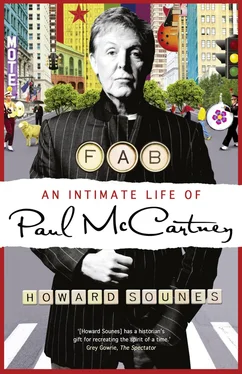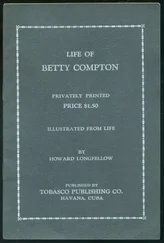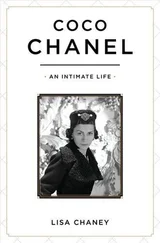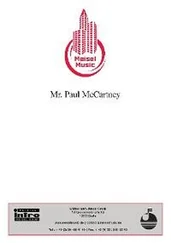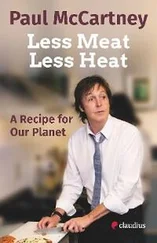It was at the Inny that Paul acquired the nickname Macca, which has endured. Friends Macca made at school included John Duff Lowe, Ivan ‘Ivy’ Vaughan (born the same day as Paul) and Ian James, who shared his taste in radio shows, including the new and anarchic Goon Show . In the playground Macca was ‘always telling tales or going through programmes that were on the previous night,’ James recalls. ‘He’d always have a crowd around him. He was good at telling tales, [and] he had quite a devilish sense of humour.’ Two more schoolboys were of special significance: a clever, thin-faced lad named Neil ‘Nell’ Aspinall, who was in Paul’s class for art and English and became the Beatles’ road manager; and a skinny kid one year Paul’s junior named George.
Born on 25 February 1943, * * It is sometimes said that Harrison was born on 24 February 1943, but his birth and his death certificate clearly state his birthday as the 25th.
George Harrison was the youngest of a family of four, the Harrisons being a working-class family from south Liverpool. Mum and Dad were Louise and Harold ‘Harry’ Harrison, the family living in a corpy house at 25 Upton Green, Speke. Harry drove buses for a living. It was on the bus home from school that Paul and George first met properly, their conversation sparked by a growing mutual interest in music, Paul having recently taken up the trumpet. ‘I discovered that he had a trumpet and he found out that I had a guitar, and we got together,’ George recalled. ‘I was about thirteen. He was probably late thirteen or fourteen. (He was always nine months older than me. Even now, after all these years, he is still nine months older!)’ As this remark implies, George always felt that Paul looked down on him and, although he possessed a quick wit, and was bright enough to get into the Inny in the first place, schoolboy contemporaries recall George as being a less impressive lad than Paul. ‘I remember George Harrison as being thick as a plank – and completely uninteresting,’ says Steve Norris bluntly. ‘I don’t think anybody thought George would ever amount to anything. A bit slow, you know [adopting a working-class Scouse accent], a bit You know what I mean, like .’
Paul’s family moved again with Mum’s work, this time to a new corpy house in Allerton, a pleasant suburb closer to town. The address was 20 Forthlin Road, a compact brick-built terrace with small gardens front and back. One entered by a glass-panelled front door which opened onto a parquet hall, stairs straight ahead, lounge to your left, with a coal fire, next to which lived the TV. The McCartneys put their piano against the far wall, covered in blue chinoiserie paper. Swing doors led through to a small dining room, to the right of which was the kitchen, and a passageway back to the hall. Upstairs there were three bedrooms with a bathroom and inside loo, a convenience the family hadn’t previously enjoyed. Paul bagged the back room, which overlooked the Police Training College, brother Mike the smaller box room. The light switches were Bakelite, the floors Lino, the woodwork painted ‘corporation cream’ (magnolia), the doorstep Liverpool red. This new home suited the McCartneys perfectly, and the first few months that the family lived here became idealised in Paul’s mind as a McCartney family idyll: the boy cosy and happy with his kindly, pipe-smoking dad, his funny kid brother, and the loveliest mummy in the world, a woman who worked hard at her job bringing other children into the world, yet always had time for her own, too. Paul came to see Mum almost as a Madonna.
What happened next is the defining event of Paul McCartney’s life, a tragedy made starker because the family had only just moved into their dream home, where they expected to be happy for years to come. Mum fell ill and was diagnosed with breast cancer. It seems Mary knew the prognosis was not good and kept this a secret, at least from her children. One day, in the summer of 1956, Mike found his mother upstairs weeping. When he asked her what was wrong, she replied, ‘Nothing, love.’
At the end of October 1956 Mary was admitted to the Northern Hospital, a gloomy old building on Leeds Street, where she underwent surgery. It was not successful. Paul and Mike were packed off to Everton to stay with Uncle Joe and Auntie Joan. Jim didn’t own a car, so Mike Robbins, who was selling vacuum cleaners between theatrical engagements, gave Jim lifts to the hospital in his van. ‘He was trying to put on a brave front. He knew his wife was dying.’ Finally the boys were taken into the hospital to say goodbye to Mum. Paul noticed blood on her bed sheets. Mary remarked to a relative that she only wished she could see her boys grow up. Paul was 14, Mike 12. Mum died on 31 October 1956, Hallowe’en, aged 47.
Aunt Joan recalls that Paul didn’t express overt grief when told the news. Indeed, he and his brother Mike played rambunctiously that night in her back bedroom. ‘My daughter slept in a camp bed,’ says Joan, ‘and the boys had the double bed in the back bedroom and they were pulling arms off a teddy bear.’ When he did address the fact that his mother had died, Paul did so by asking Dad gauchely how they were going to manage without her wages. Stories like this are sometimes cited as evidence of a lack of empathy on Paul’s part, and it is true that he would react awkwardly in the face of death repeatedly during his life. It is also true that young people often behave in an insensitive way when faced with bereavement. They do not know what death means. Over the years, however, it became plain that Paul saw his world shattered that autumn night in 1956. The premature death of his mother was a trauma he never forgot, nor wholly got over.
*One of the largest ships in the world.
†Unless indicated, sterling/dollar exchange values are as of the time of writing.
*It is sometimes said that Harrison was born on 24 February 1943, but his birth and his death certificate clearly state his birthday as the 25th.
CHAPTER 2 JOHN
HAIL! HAIL! ROCK ’N’ ROLL
A dark period of mourning and adjustment followed the death of Mary McCartney, as widower Jim came to terms with the untimely loss of his wife and tried to instigate a domestic regime at Forthlin Road whereby he could be both father and mother to his boys. This was not easy. Indeed, Paul recalls hearing his father crying at night. It was thanks to the ‘relies’ rallying round, especially Aunts Ginny, Milly and Joan, that Jim was able to carry on at Forthlin Road, the women taking turns to help clean and cook for this bereaved, all-male household.
Crucially, as far as the history of pop is concerned, Paul reacted to the death of his mother by taking comfort in music. He returned the trumpet his father had given him for his recent birthday to Rushworth and Dreaper, a Liverpool music store, and exchanged it for an acoustic Zenith guitar, wanting to play an instrument that would also allow him to sing, and not liking the idea of developing a horn player’s callous on his lips. Learning guitar chords proved challenging because Paul was left-handed and he tried at first to play as a right-hander. It was only when he saw a picture of Slim Whitman playing guitar the other way around (Whitman having taught himself to play left-handed after losing part of a finger on his left hand) that Paul restrung his instrument accordingly and began to make progress. Schoolmate Ian James also played guitar, with greater proficiency, and gave Paul valuable lessons on his own Rex acoustic. *As to what the boys played, there was suddenly a whole new genre of music opening up.
Until 1955, the music Paul had heard and enjoyed consisted largely of the jazz-age ballads and dance tunes Mum and Dad liked: primarily the song books of the Gershwins, Cole Porter and Rodgers and Hart; while trips to the movies had given Paul an appreciation of Fred Astaire, a fine singer as well as a great dancer who became a lifelong hero. Now bolder, more elemental rhythms filled his ears. The first real musical excitement for young people in post-war Britain was skiffle, incorporating elements of folk, jazz and blues. A large part of the genre’s appeal was that you didn’t need professional instruments to play it. Ordinary household objects could be used: a wooden tea chest was strung to make a crude bass, a tin washboard became a simple percussion instrument, helping define the rasping, clattering sound of the music. Despite being played on such absurd household items, skiffle could be very exciting, as Scots singer Lonnie Donegan proved in January 1956 when he scored a major hit with a skiffle cover of Leadbelly’s ‘Rock Island Line’ (though the recording features a standard double bass). Almost overnight, thousands of British teenagers formed skiffle bands of their own, with Paul among those Liverpool skifflers who went to see Donegan perform at the local Empire theatre in November, just a few days after Mary McCartney died.
Читать дальше
